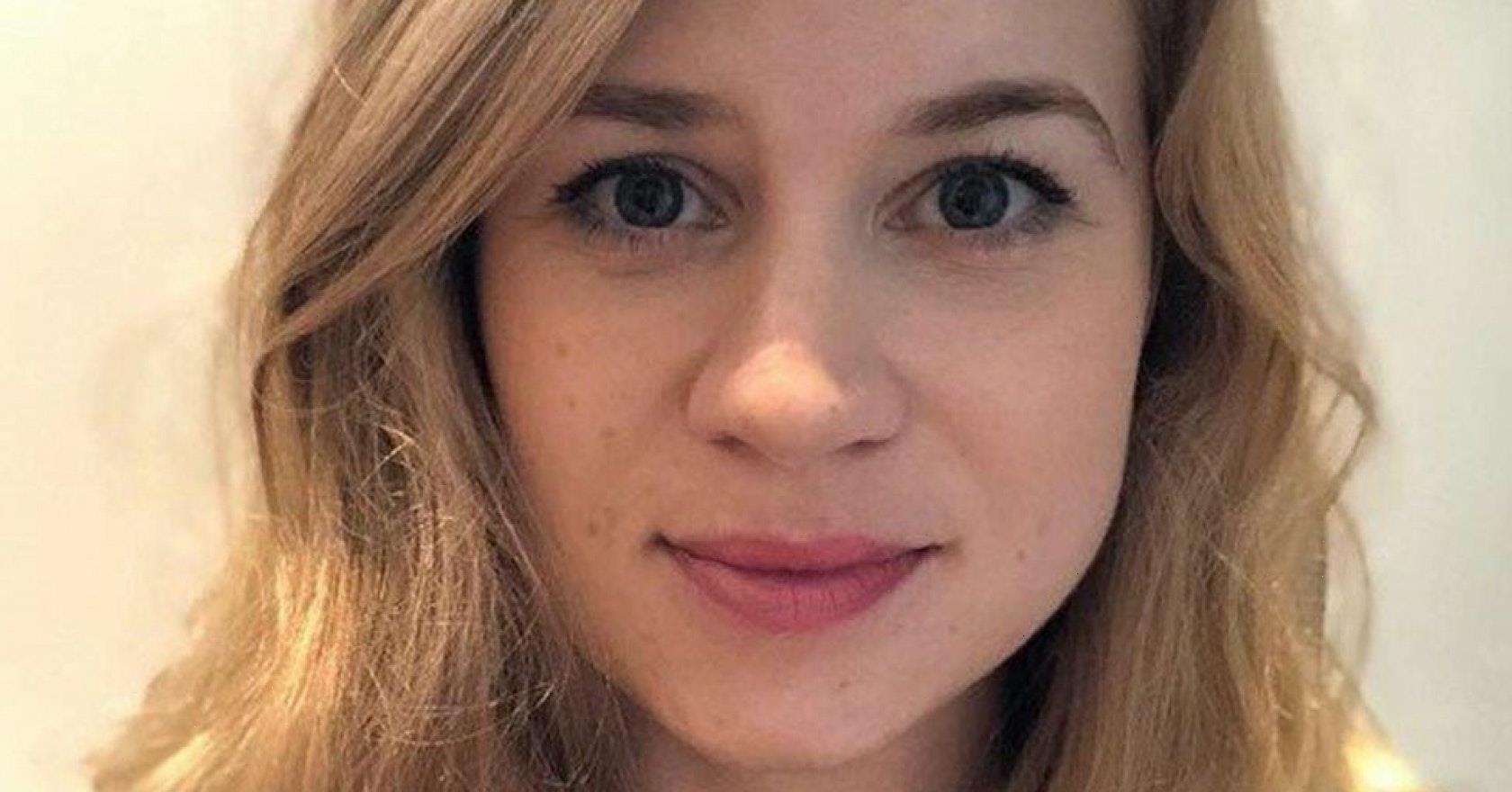REMEMBER when a cough was just a cough?
When a coughing fit didn’t have you reaching for a lateral flow test and didn’t make everyone on the bus glare at you?
For Love Island 2021 contestant Priya Gopaldas, a cough hasn’t just been a cough for a long time thanks to a chronic lung condition, bronchiectasis.
It can cause sufferers to have a chronic cough which Priya says “can be really annoying and embarrassing and just not fun to have”.
That's especially the case in a pandemic, when even the quietest coughs in public means everyone stares and raises their eyebrows at you.
“When you're in an enclosed space with anyone and you're coughing, it can be really embarrassing,” she says, and as a fifth year medical student, this also comes up with her patients.
“I've learned to explain, ‘It's a chronic cough, it's not Covid,’ and I've probably used that sentence 1,000 times!”
Bronchiectasis is when the airways of the lungs are slightly widened.
Most read in Health
DOCTOR'S ORDERS I'm a doctor and these 5 changes could be a sign of deadly lung cancer
Daily Covid cases plunge by almost 30% in a week as one in 19 now have the bug
I'm an expert and here's what really happens when you get the coil put in
Brit dies of Ebola-like Lassa Fever after becoming third person to test positive
“It means you have excess mucus that can build up and it causes me to have this chronic cough and have chest infections regularly,” Priya explains.
Now 24, the Londoner was diagnosed after a chest infection landed her in hospital when she was 14.
“It was really bad,” she remembers. “I was in hospital for two weeks with pneumonia.
“And after, that for a year, I was just really unwell.”
She’d barely recover from one chest infection before another got a grip on her lungs, and was constantly succumbing to coughs and fevers.
Despite consulting multiple doctors, it was only when she saw a respiratory specialist who booked a CT scan that they discovered her bronchiectasis.
“I'd never heard of it,” she remembers.
“I didn't really feel too scared.
“I just felt ill all the time, but my dad was really worried.
I just felt ill all the time
“That's why I went to so many different doctors because a lot of them told me I had asthma which is really common for 14-year-olds to have.”
As a result, Priya – whose career path was inspired by her time in hospital and her diagnosis – went on asthma medication but none of it, or the “inhalers they prescribed, made a difference” which is when her dad became determined to get an accurate diagnosis.
“When I got told I hadbronchiectasis, it was sort of a relief finally knowing what I had and what I could do to treat it.”
And this is where you might expect she embarked on a whole litany of medication and procedures, but no.
Instead of drugs, Priya found physio and exercise to have the greatest impact on her symptoms as they both help clear out her lungs really effectively.
“A lot of people are surprised by that because usually you don't think that if you've got a lung condition, running or doing any cardio exercise would make it better, but actually I found that it does,” says Priya.
“And so, up to this day, I don't take any medication.
“I just run a lot and do some physio in the mornings and evenings.”
HIT THE ROAD
When Priya says she runs a lot, she means <a lot> – around 300km a month, as well as doing marathons and ultra marathons.
“I used to love running at school but never, never, as far as I run now.
“I would never have imagined I could do ultras.”
Priya’s next ultra marathon is in March in Sri Lanka.
She’ll be running more than a marathon a day for five days straight – a total of 250km, all in aid of NHS Charities Together – followed by the Brighton Marathon in April, to raise money for the British Lung Foundation.
Priya says she wants to “encourage more people with chronic conditions, and specifically, chronic respiratory conditions, to do exercise, especially cardiovascular” to help manage their condition.
WHAT IS BRONCHIECTASIS?
BRONCHIECTASIS is a long-term condition that affects the airways of the lungs.
Up to half of cases have no known cause, but in some cases it’s linked to other illnesses including asthma, COPD and lung infections, or inflammatory conditions such as inflammatory bowel disease and some types of arthritis.
Bronchiectasis should not be confused with the bronchiectasis caused by the genetic condition Cystic Fibrosis.
SYMPTOMS
- A cough that doesn’t go away and produces phlegm
- Breathlessness
- Frequent chest infections
- Fatigue
- Sinus problems
DIAGNOSIS
If a doctor suspects bronchiectasis, a patient is referred to a respiratory consultant for tests.
They will then probably be given a CT scan and their sputum might well be analysed.
In some cases, a bronchoscopy might be offered – which is when a camera is inserted into a narrow tube to look into the lungs.
TREATMENT
Bronchiectasis is a chronic condition, but symptoms can be alleviated, and the number of infections limited with the following treatments:
- Airway clearance (clearing mucus from the lungs with breathing exercises)
- Deep breathing through the nose
- A personalised self-management plan
- Antibiotics used for flare-ups
- Check-ups with a respiratory physiotherapist
For more information on bronchiectasis, visit British Lung Foundation – The UK’s lung charity (blf.org.uk) or call the charity’s helpline on 03000 030 555.
She says her ability to run longer and longer distances is actually a “silver lining” to her bronchiectasis.
“A lot of people think they can't do exercise or can't run because of [their condition], but I want to show people it is possible, and it's a great, great way to look after your health.”
For Priya, jogging is “very mental, as well as physical”.
“It gives me time just to be in my own head, to think over things,” she says.
“I can go at a really slow pace for like an hour and I'll feel as if I've had an hour-long therapy session.
“It just calms me down.”
That mental calm comes in handy considering the thinking is, ultra marathons are 90% mental and 10% physical.
“They are tough and you get to points where you're like, ‘I really want to stop!’ but then you push past that and it just helps build your resilience.
“And that's what I love about ultras, they're just such a challenge, but you feel so good afterwards,” she says.
GET MOVING
Although of course, not all of us will suddenly start running ultras – chronic condition or otherwise – but just a little bit of cardiovascular exercise could make all the difference to your health.
“I find that when you exercise, all the air is moving in your chest and that helps bring up anything that could be stuck in your bronchi and clears out the airways,” says Priya, who doesn’t experience shortness of breath as one of her symptoms.
On “bad days” she might need an extra pillow to prop her up and help her sleep and not cough, meanwhile “summer tends to be easier”.
It's in winter that her symptoms get worse.
“You're more at risk for getting pneumonia or chest infections over winter, so I have to be quite careful,” she says.
Between her running, TV commitments and medical studies – Priya is set to graduate in 2023, and is considering specialising in orthopaedic surgery – finding time to date must be difficult?
“Oh gosh,” says Priya with a smile, “Yeah, it's tough.”
But surely not as tough as an ultra…
To support Priya's ultra marathon in Sri Lanka for NHS Charities Together visit www.justgiving.com/campaign/priyagopaldas
Source: Read Full Article











